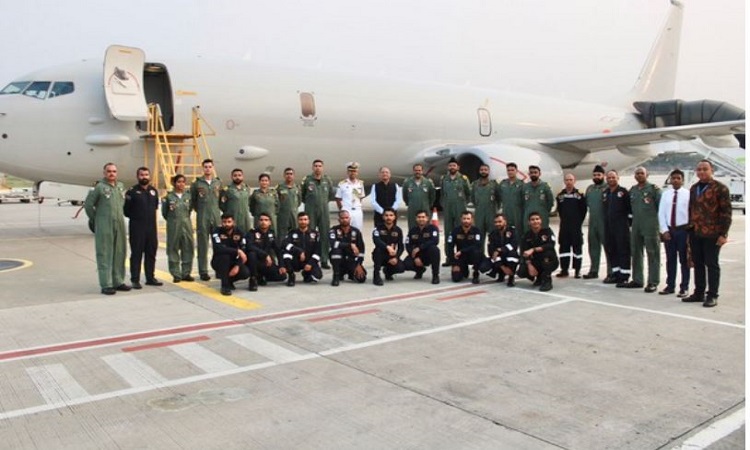
Jakarta: The Indian Navy’s P-8I, Multi Role Long Range Maritime Reconnaissance Anti-Submarine Warfare aircraft landed at Jakarta Airport on return transit post participation in Ex Malabar-23 on Saturday.
During the stoppage, the aircraft took part in the complete gamut of military, constabulary, benign and diplomacy roles of the Indian Navy. On the occasion, India’s Ambassador to Indonesia and Timor-Leste, Sandeep Chakravorty visited the aircraft and interacted with the crew where he discussed growing cooperation between India and Indonesia in the maritime security domain.
While the Ambassador was briefed on the various MDA upgrades and ASW operations being carried out by the powerful P-8I aircraft in the IOR. The 27th edition of joint defence Exercise MALABAR between the naval forces of India, the United States, Japan, and Australia concluded on the East Coast of Australia off Sydney on Monday.
The exercise saw the participation of Ships, Submarines and aircraft from the Indian Navy, Royal Australian Navy (RAN), Japan Maritime Self-Defence Force (JMSDF) and the US Navy (USN), according to an official release. Exercise MALABAR 23 was conducted in two phases, which included a harbour phase from August 11-15 and a sea phase from August 16-21.
An indigenously built destroyer, the INS Kolkata, a frigate, the INS Sahyadri, and a maritime patrol aircraft, the P8i, served as the Indian Navy's representation.
As per the official statement, other participating units included RAN ships HMAS Choules and HMAS Brisbane, USS Raphael Peralta, JS Shiranui, along with submarines, fighter aircraft, maritime patrol aircraft and shipborne helicopters.
While the ships sailed out for the sea phase from Sydney harbour, the Air assets operated from RAAF Amberley Brisbane, where the P-8I Dets involving IN, RAAF and US P-8 crew were stationed.
The sea phase of Ex Malabar witnessed complex and high-intensity exercises in air, surface and undersea domains, weapon firings and cross-deck helicopter operations.
The joint exercises at sea honed the war-fighting skills and enhanced interoperability between the four navies to undertake advanced maritime operations. The seamless integration of air assets also showcased the exceptional coordination and interoperability between the Indian, Australian and US maritime patrol aircraft units.
At the culmination of five days of multifarious exercises, Exercise MALABAR vividly showcased the strong cooperation, shared values and the collective ability of the four participating nations to ensure a free, open and inclusive Indo-Pacific promoting peace and security for all. (ANI)







